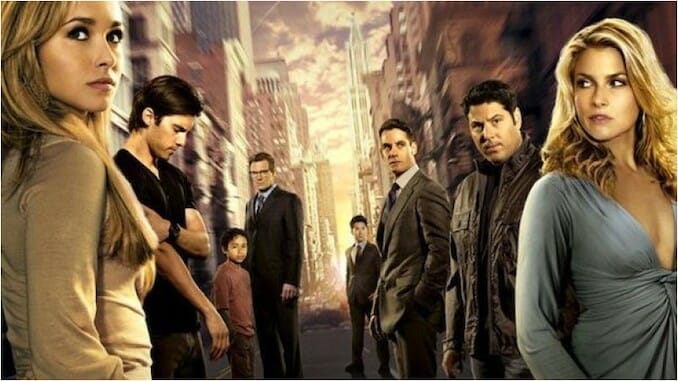TV Rewind: Genre Fans Owe NBC’s Heroes a Debt
Photo: NBC
Editor’s Note: Welcome to our TV Rewind column! The Paste writers are diving into the streaming catalogue to discuss some of our favorite classic series as well as great shows we’re watching for the first time. Come relive your TV past with us, or discover what should be your next binge watch below:
![]()
Whether you want to admit to it now or not, you—like almost everyone else in the early 2000s—probably loved NBC’s Heroes. At least for a little while.
The high concept drama, which followed the story of a dozen ordinary people across the globe as they suddenly realized they had extraordinary abilities, was always as much character study as it was a comic book romp, slowly teasing out connections between its major players and pushing them all inexorably together throughout its first season, ostensibly so that they might prevent the destruction of New York City in the massive explosion that was teased in each episode. Part of the fun of Heroes was figuring out precisely how all these people were connected to one another, how their powers worked, and whether or not their abilities would ever be useful in any real way, let alone as part of saving New York.
The series boasted a positively massive number of central characters, which spanned almost all age ranges and multiple nationalities. Texas cheerleader Claire Bennett (Hayden Panettiere) was essentially indestructible and could regenerate, Wolverine-style. Japanese office drone Hiro Nakamura (Masi Oka) could teleport and travel in time. NYC paramedic Peter Petrelli (Milo Ventimiglia) could mimic the powers of others, while his brother Nathan (Adrian Pasdar), a state senator, could fly. Single mother Nikki (Ali Larter) had super strength that she could only access when her alternate personality was in control. LAPD cop Matt Parker (Greg Grunberg) was a telepath who could read minds and eventually project illusions. Other characters boasted abilities like electrokinesis, phasing, and precognition.
Oh, and the villain was essentially a superpowered serial killer, stalking other enhanced individuals so that he could literally cut open their brains and steal their powers. (Dexter could never!)
In short; Heroes was often a whole lot, but man that first season was truly great television. Its bonkers cliffhangers and surprise twists were the definition of must-see TV, true viral pop culture moments that existed long before social media made going viral passe. But while Heroes’ dramatic episode endings certainly provided buzzy watercooler moments, they also served larger, necessary in-narrative purposes in that first year, advancing the season’s primary story in some significant way or adding new layers to characters we thought we knew.
-

-

-

-

-

-

-

-

-

-

-

-

-

-

-

-

-

-

-

-

-

-

-

-

-

-

-

-

-

-

-

-

-

-

-

-

-

-

-

-








































